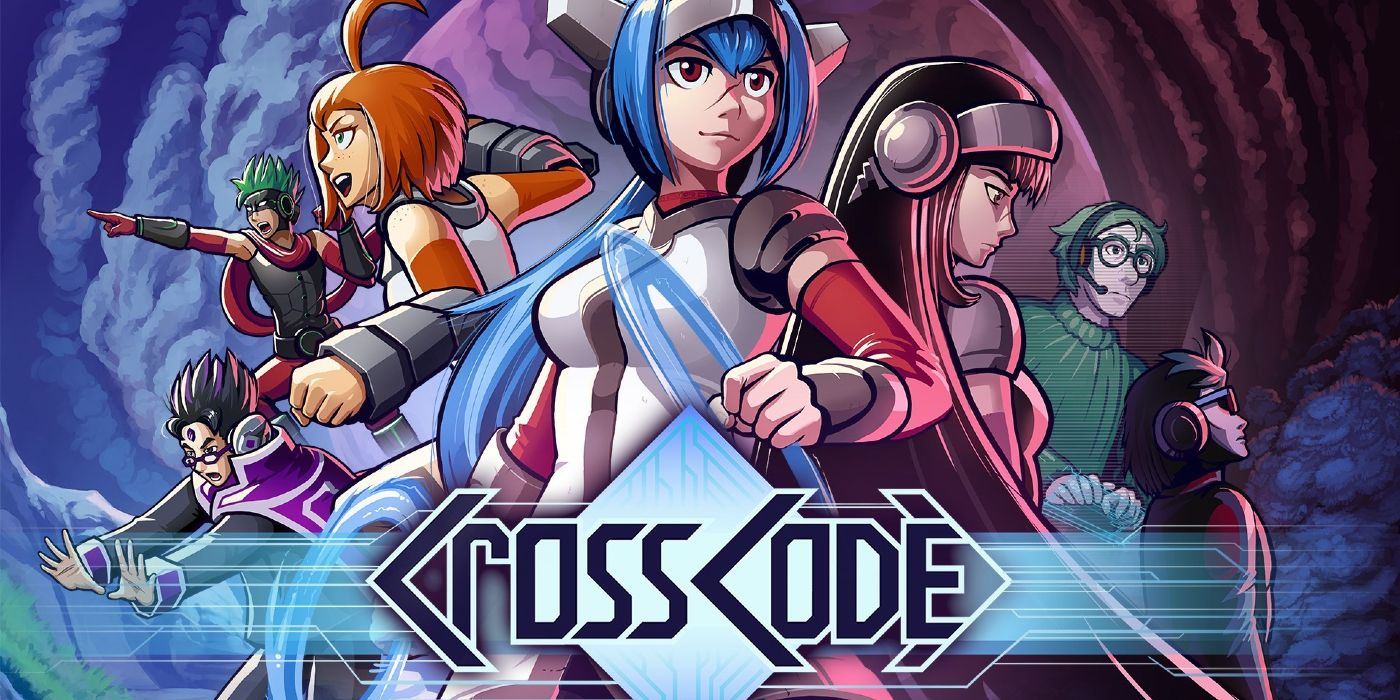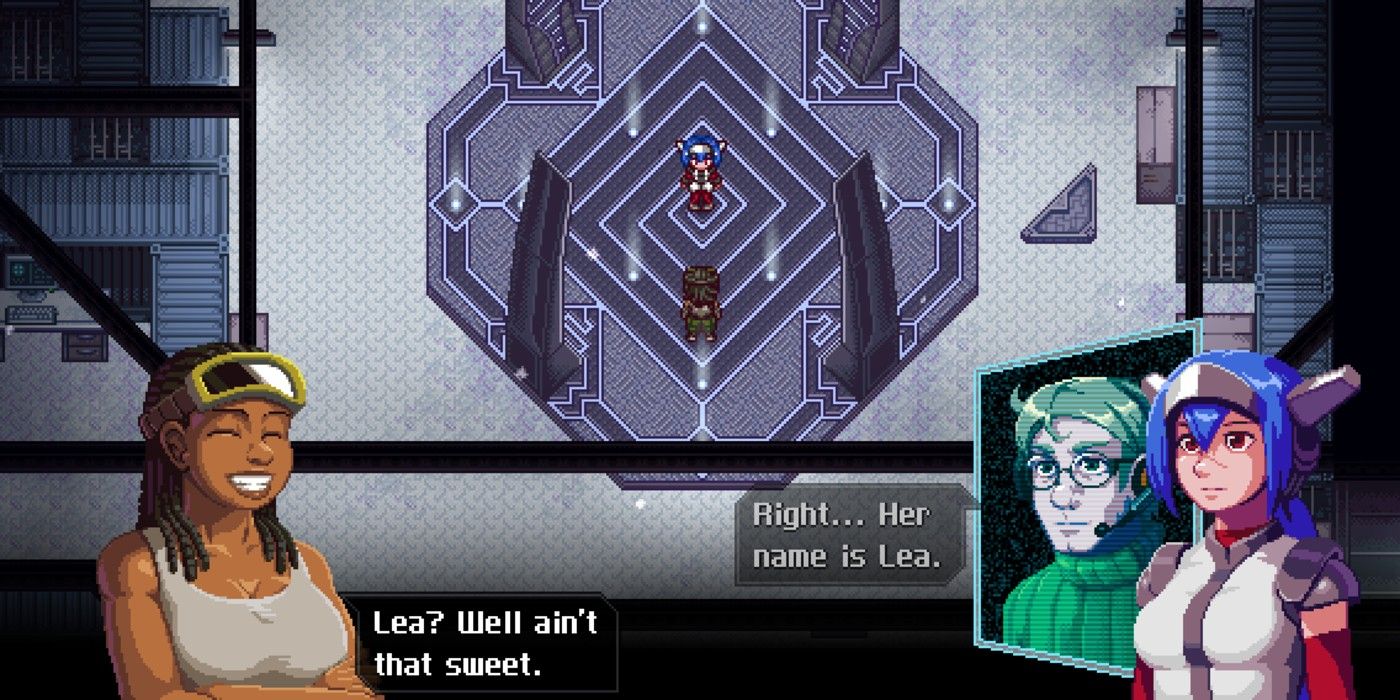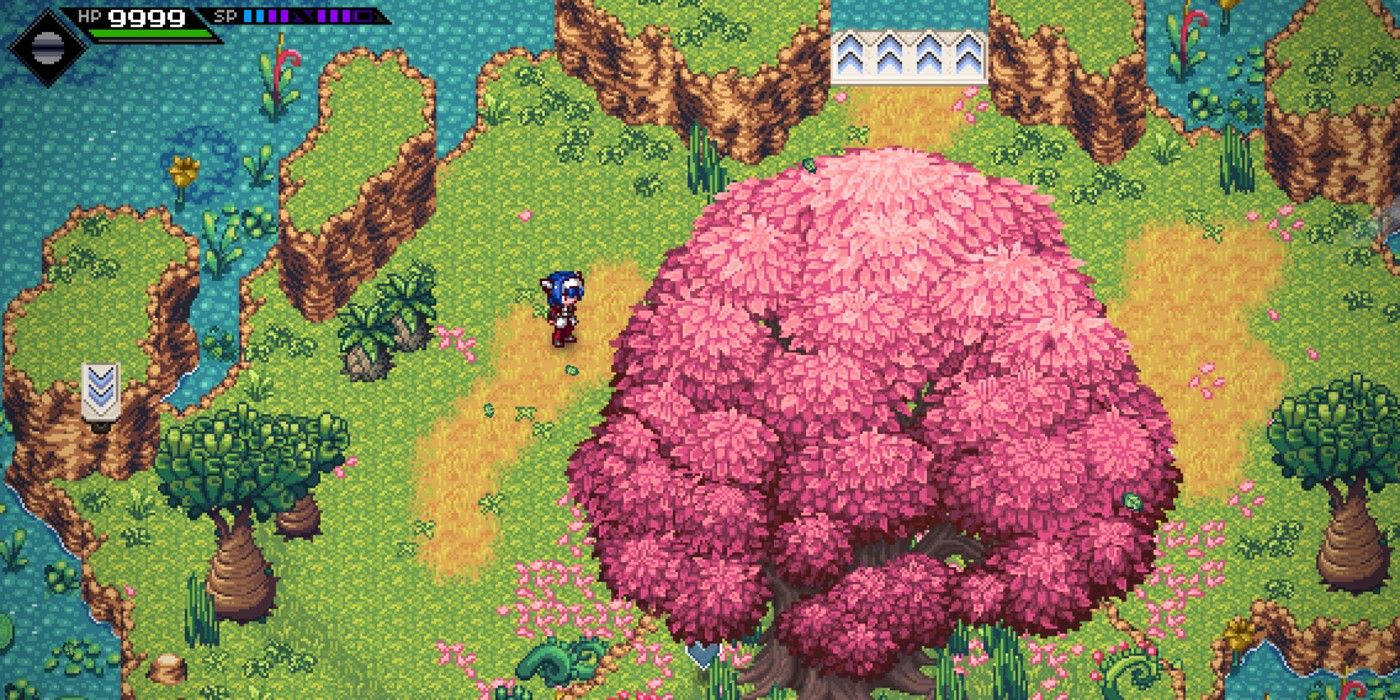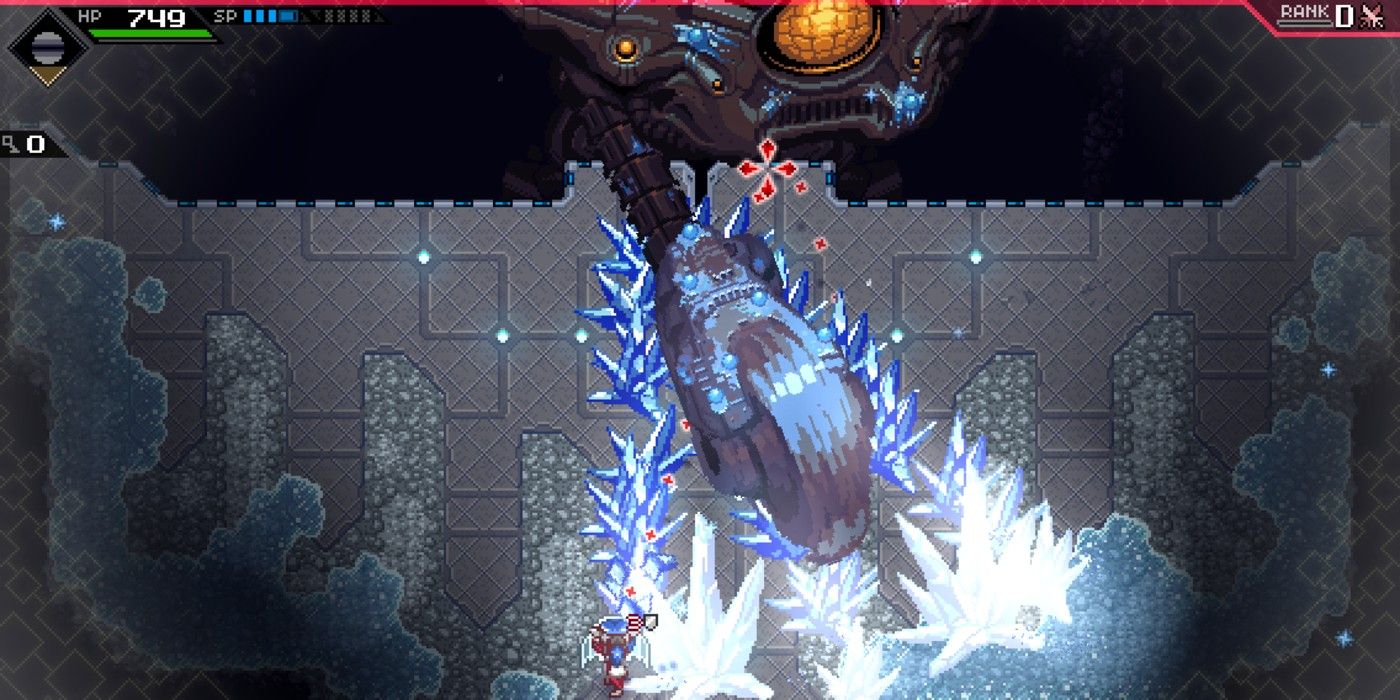
There's something oddly appealing about living in a virtual world. Ready Player One's success was a good indication of this phenomenon, as many fans fell in love with the massive online world of OASIS giving players the nigh-limitless freedom to do anything and be anyone. The online phenomenon Second Life is a close approximation of having a real virtual world to escape to, and there are numerous stories of people getting completely lost in the game. CrossCode is a brand new story woven around a similarly immersive virtual world, but players don't need a headset or a special haptic suit to experience this one.
CrossCode takes place in a fictional MMORPG called CrossWorlds, set on a mysterious alien planet. It stars a mute young woman named Lea with a mysterious past that she cannot remember. An enigmatic programmer named Sergei hopes that by playing through CrossWorlds, Lea can recover her memories and remember who she is, and to that end, he acts as her guide throughout the experience. This is one of those plots that makes more sense the less one thinks about it, and it can be hard to get invested early on, given how little the player knows about the setting and the characters. Not too long after starting the game CrossCode basically drowns the player in additional info, and it can get rather overwhelming trying to keep all the relevant info straight.
Players may find it easier to set the overarching plot aside and focus on Lea. Lea is a lovable protagonist who manages to be expressive and endearing despite her loss of speech. Some of the best moments in the game come from watching her try to form friendships with other CrossWorlds players, characters who are totally ignorant of her circumstances. As the game goes on, Sergei slowly patches more and more words into Lea's vocabulary, which provides a nice sense of progression in dialogue to match the kind that comes with playing and mastering the game.

CrossCode is a surprisingly robust RPG. Lea plays as something called a Spheromancer, which allows her to fling balls at targets. This mechanic is used both as a weapon and a tool for solving puzzles. Many obstacles in CrossCode can be overcome with a well-placed ball aimed at a switch or used to push a block into place. For the most part these puzzles work great, and they're intuitive enough that the player rarely comes to wit's end while challenging enough to make the player stop and think through the solution. Unfortunately, aiming isn't always as precise as desired, especially when Lea has to bounce a ball off of a corner to land a trick shot. Height can also be an issue, not only in puzzle solving but in general traversal. CrossCode is played from an overhead perspective, like an old-school Zelda game, but elevation is a major factor when it comes to certain platforming challenges. It can be difficult at times to parse the environment and discern whether or not one landmass is higher than another.
For a game with this many puzzle elements, it's a bit surprising how in-depth and satisfying combat is. Lea has access to a wide array of abilities to supplement her basic combat moves, and each fight is a frantic, fast-paced dance that rewards quick thinking and clever strategies. As Lea progresses through the game she unlocks four different elemental forms that can be switched between at the press of a button. Not only do these forms modify her base stats, they also each have their own skill tree, in addition to the basic one Lea has access to at the start of the game. Each of the five skill trees are complex and large, and the potential for customization is almost overwhelming. Furthermore, some of the characters Lea meets on her journey can even join her party and fight by her side, opening up further directions for combat to take.

Unfortunately, the game doesn't always present challenges worthy of this staggering amount of combat variety. Each overworld area in the game has a relatively small amount of enemies to draw from, and making progress through these environments can start to feel repetitive fast. There is at least some relief for this, however. In true MMORPG style, there are sidequests virtually everywhere players look, but not all of them are fun. The most common quest objective will be "retrieve X items from enemies" or simply "defeat X enemies," which feels very authentic to the source material but doesn't always do much to make the in-game world feel alive. Still, if nothing else, they give incentive for the player not to run past every enemy they see, which is good, because the game's difficulty climbs very quickly, and a small amount of grinding is encouraged.
If the overworld begins to feel stale, the excellent dungeon designs make up for that in spades. This is where the game truly shines, with the best puzzles and the most engaging fights. All the best elements of dungeon-crawling are here: solving puzzles and overcoming foes to unlock keys, discovering powerful new abilities to overcome obstacles, and, of course, taking on titanic, spectacular bosses. The bosses can be brutally hard, but the satisfaction of refining your strategy, learning their attacks, and finally landing that finishing blow is divine.

Radical Fish Games has done a remarkable job of replicating the MMORPG experience in a single player game, and of elevating it with the complex story and powerful character interactions of a singleplayer experience. Combine that with a beautiful world brimming with secrets, gauntlets of challenging and brilliant puzzles, and a deep, bombastic combat system, and CrossCode is an easy game to recommend. It's not a perfect game, and, like the MMOs it draws inspiration from, it can become a little bit of a drag from time to time. But the positives far outweigh the negatives, and players can bet that even when things get dull, there's a delightful surprise just around the corner.
CrossCode is out now for PC and releases June 9th for PS4, Xbox One, and Nintendo Switch. A digital PS4 download code was provided to Screen Rant for purposes of review.
from ScreenRant - Feed https://ift.tt/2Z8F1AO

0 Comments